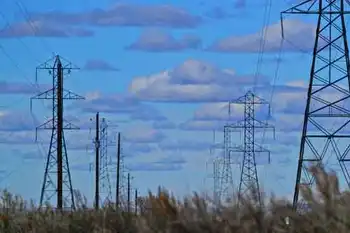Are major changes coming to your electric bill?

CSA Z463 Electrical Maintenance
Our customized live online or in‑person group training can be delivered to your staff at your location.

- Live Online
- 6 hours Instructor-led
- Group Training Available
California Income-Based Electricity Rates propose a fixed monthly fee set by income as utilities and the CPUC weigh progressive pricing, aiming to cut low-income bills while PG&E, SCE, and SDG&E retain usage-based charges.
Key Points
CPUC plan adds income-tiered fixed fees to lower low-income bills while keeping per-kWh usage charges.
✅ Adds fixed monthly fees by income to complement per-kWh charges
✅ Cuts bills for low-income households; higher earners pay more
✅ Utilities say revenue neutral; conservation signals preserved
California’s electric bills — already some of the highest in the nation — are rising as electricity prices soar across the state, but regulators are debating a new plan to charge customers based on their income level.
Typically what you pay for electricity depends on how much you use. But the state’s three largest electric utilities — Southern California Edison Company, Pacific Gas and Electric Company and San Diego Gas & Electric Company — have proposed a plan to charge customers not just for how much energy they use, but also based on their household income, moving toward income-based flat-fee utility bills over time. Their proposal is one of several state regulators received designed to accommodate a new law to make energy less costly for California’s lowest-income customers.
Some state Republican lawmakers are warning the changes could produce unintended results, such as weakening incentives to conserve electricity or raising costs for customers using solar energy, and some have introduced a plan to overturn the charges in the Legislature.
But the utility companies say the measure would reduce electricity bills for the lowest income customers. Those residents would save about $300 per year, utilities estimate.
California households earning more than $180,000 a year would end up paying an average of $500 more a year on their electricity bills, according to the proposal from utility companies.
The California Public Utilities Commission’s deadline for deciding on the suggested changes is July 1, 2024, as regulators face calls for action from consumers and advocates. The proposals come at a time when many moderate and low-income families are being priced out of California by rising housing costs.
Who wants to change the fee structure?
Lawmakers passed and Gov. Gavin Newsom signed a comprehensive energy bill last summer that mandates restructuring electricity pricing across the state.
The Legislature passed the measure in a “trailer-bill” process that limited deliberation. Included in the 21,000-word law are a few sentences requiring the public utilities commission to establish a “fixed monthly fee” based on each customer’s household income.
A similar idea was first proposed in 2021 by researchers at UC Berkeley and the nonprofit thinktank Next 10. Their main recommendation was to split utility costs into two buckets. Fixed charges, which everyone has to pay just to be connected to the energy grid, would be based on income levels. Variable charges would depend on how much electricity you use.
Utilities say that part of customers’ bills still will be based on usage, but the other portion will reduce costs for lower- and middle-income customers, who “pay a greater percentage of their income towards their electricity bill relative to higher income customers,” the utilities argued in a recent filing.
They said the current billing system is unjust, regressive and fails to recognize differences in energy usage among households,
“When we were putting together the reform proposal, front and center in our mind were customers who live paycheck to paycheck, who struggle to pay for essentials such as energy, housing and food,” Caroline Winn, CEO of San Diego Gas & Electric in a statement.
The utilities say in their proposal that the changes likely would not reduce or increase their revenues.
James Sallee, an associate professor at UC Berkeley, said the utilities’ prior system of billing customers mostly by measuring their electric use to pay for what are essentially fixed costs for power is inefficient and regressive.
The proposed changes “will shift the burden, on average, to a more progressive system that recovers more from higher income households and less from lower income households,” he said.











